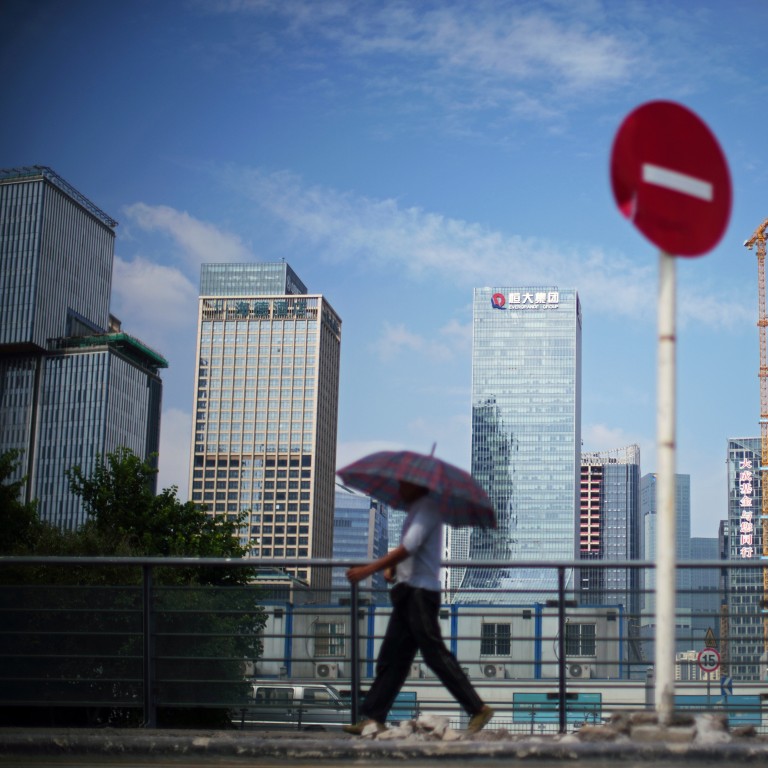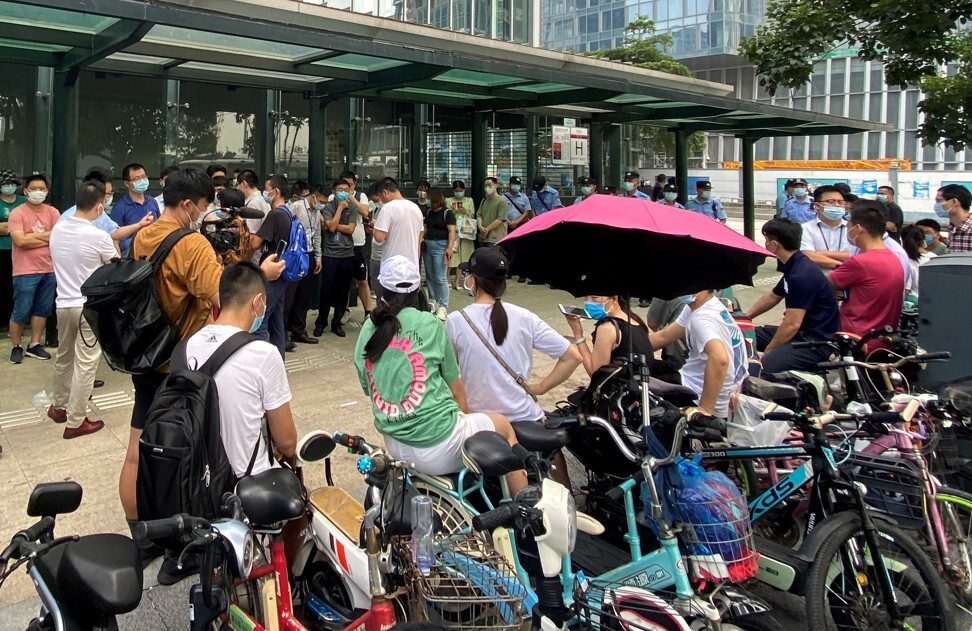
Evergrande: US fund unimpressed as China treats credit distress, bond defaults with kid gloves
- Authorities are keen to avoid dislocations in the economy, as evidenced by the fact Evergrande, Huarong are ‘being treated with kid gloves’
- More efforts are needed to establish a transparent and reliable default mechanism in China’s bond market, US fund manager says
Despite efforts to boost transparency and discard moral hazard, Chinese bond issuers continue to ease or postpone debt repayments by issuing rollover debt, seeking deadline extensions, or cancelling features such as early redemptions, according to Kate Jaquet, a money manager at California-based Seafarer Capital Partners, which focuses on emerging markets.
Others have avoided default by undertaking private negotiations with individual creditors, often persuading bondholders not to exercise put options, deferring interest payments on perpetual securities, forcing debt exchanges, or even repaying bondholders outside the proper clearing channels some days or weeks late, she added.
“If regulators continue to tolerate the opaque and crafty tactics that have been prevalent in the past, investors will remain hesitant,” she said in a report on Seafarer’s website. “The market’s development will be stunted.”
The crisis at Evergrande, which is saddled with 1.97 trillion yuan (US$305 billion) of liabilities, is being closely watched as a test of how China is treating foreign investors in debt restructuring. The Shenzhen-based developer last month invoked a 30-day grace period on two bond interest payments amid a liquidity crunch. That reprieve ends later this week.
Jaquet, who co-manages the US$2.41 billion Seafarer Overseas Growth & Income Fund, cited Evergrande and China Huarong Asset Management as examples. Authorities remain steadfast in wanting to avoid major dislocations in the economy, as evidenced by the way they are “being treated with kid gloves,” she added.
Earlier defaults at Yongcheng Coal and Huachen Automotive since late last year had unnerved investors and remained unresolved, prompting authorities to warn borrowers of its zero-tolerance stance on issues such as fraudulent bond offerings, false information and malicious transfers of assets to frustrate creditors.

Evergrande has been selling equity stakes to raise cash and its founder Hui Ka-yan has stepped down as chairman of its mainland subsidiary, a move seen as an attempt to distance the listed Hong Kong parent, where much of the debt resides, from the mainland operating company, where most of the assets lie. The action goes against statements and guidelines from regulators, and should concern investors, Seafarer said.
Last month, the developer took an off-exchange measure to “resolve” a debt problem with onshore creditors, while regulators separately stepped in to inform major banks that Evergrande would not be able to service its bank loans due on September 20.
“I remain a skeptic that these statements apply to all bond issuers, based on events unfolding in China’s indebted residential property sector,” Jaquet added.

The Seafarer Overseas Growth and Income Fund fell 0.7 per cent this year through the third quarter, and has handed investors 20 per cent returns on a one-year basis, according to its latest fund report. The MSCI Emerging Market Index lost 1 per cent on a year-to-date basis and gained 18.6 per cent over 12 months.
While the fund avoided headline risks in China related to real estate developers and the government crackdown on industries such as education, it lost almost 8 per cent in the quarter ended September 30 as holdings in South Korea suffered, co-manager Paul Espinosa said earlier this month.
Investors are watching closely to see how high-profile Chinese debt restructurings will work out. While Evergrande and Huarong’s paths are quite different, Jaquet said “there is a level of opacity at both and this is not healthy for the development of China’s bond market.”
The best way to increase foreign investor appetite for and promote the advancement of the Chinese bond market is the reliable invocation of the default mechanism when issuers get into financial trouble, she added.
“More transparent defaults, more standardised covenants in bond indentures and better ratings could help to bring more foreign participation to China’s domestic bond market,” Jaquet said. “What happens with a few large looming restructurings will be critical to this effort.”

